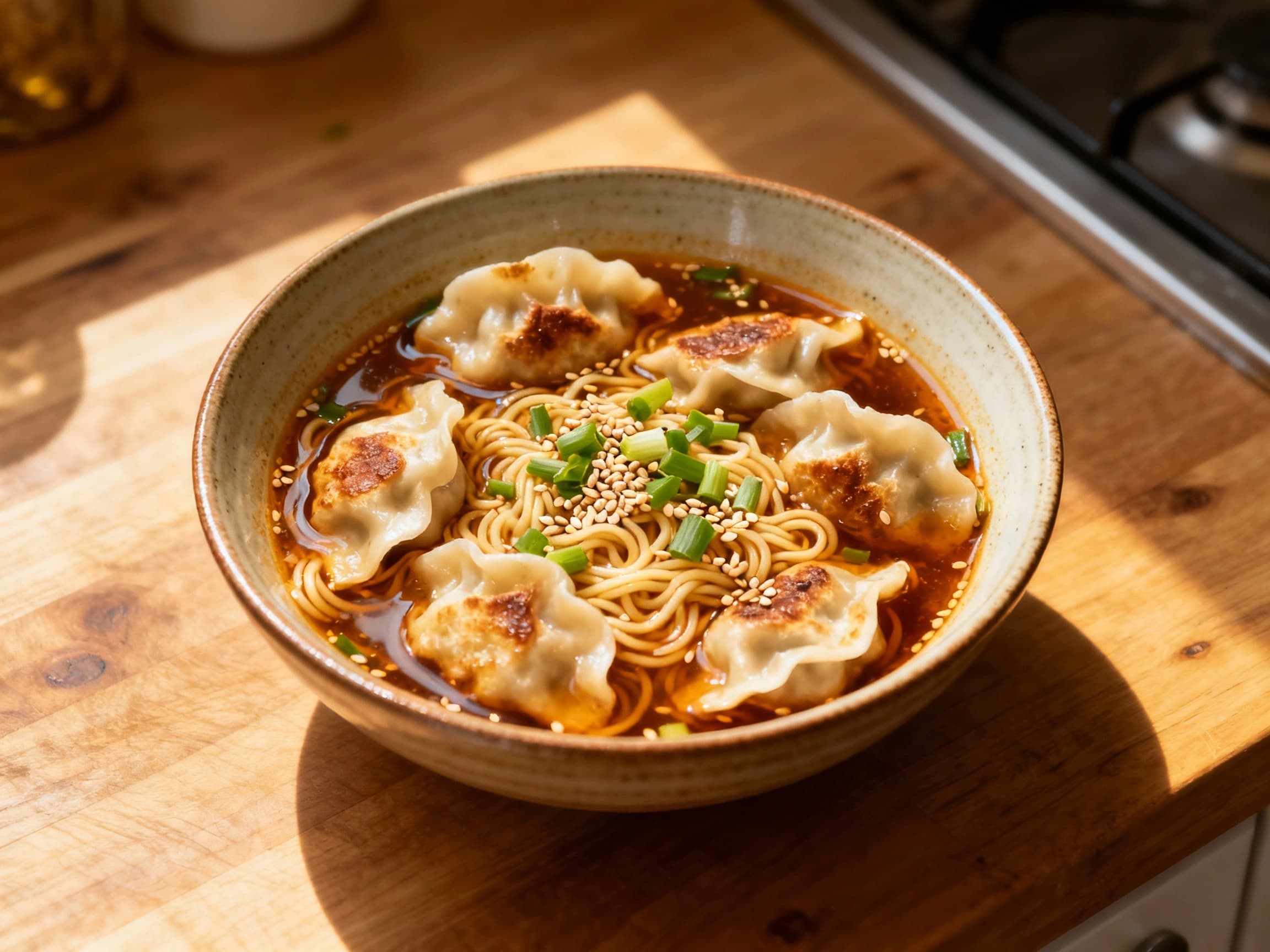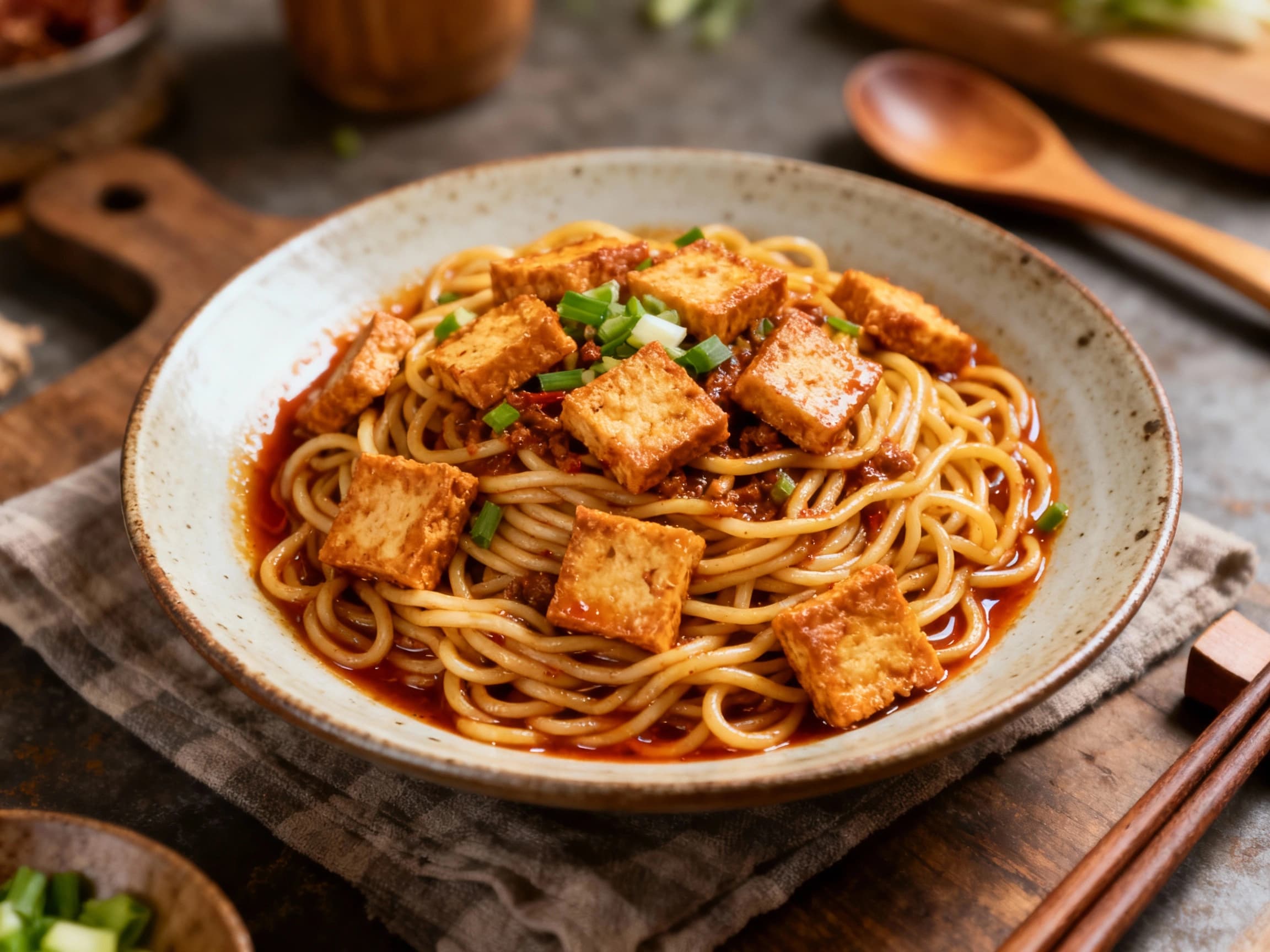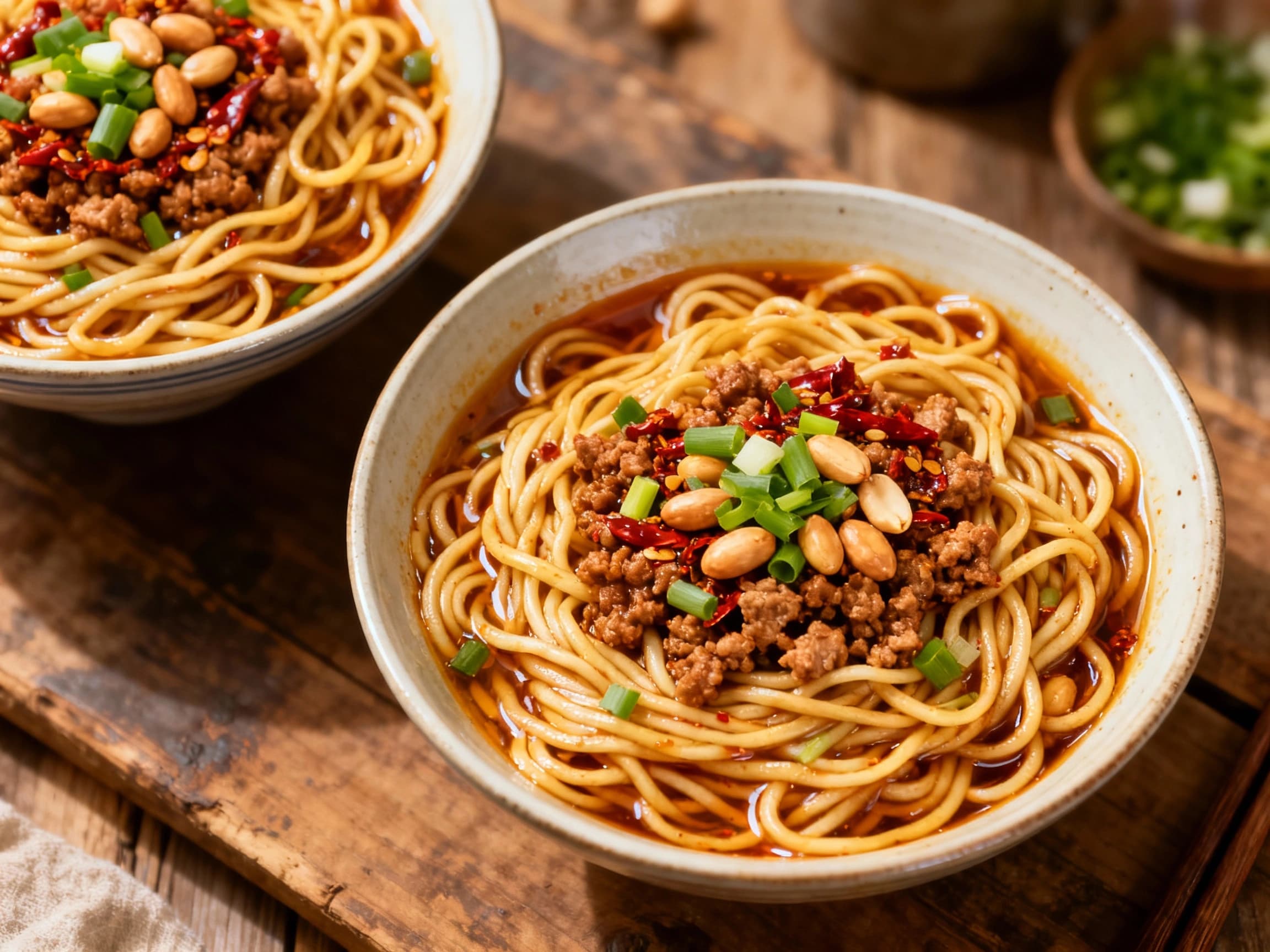
Dan Dan Noodles
担担面
- Country
- China
- Region
- Sichuan
- Recipes
- 3 Recipes
Origins & Characteristics of Dan Dan Noodles
Dan Dan Noodles (担担面 Dàndàn Miàn) are a classic Sichuanese street food, known for their intensely flavorful and spicy sauce. The name 'Dan Dan' refers to the shoulder pole (dàndàn) traditionally used by street vendors to carry the noodles and condiments from market to market. These noodles are characterized by a complex sauce typically made with preserved vegetables (like pickled mustard greens), chili oil, Sichuanese ground pork, scallions, garlic, ginger, and Sichuan peppercorns, all tossed with soft wheat noodles. The dish originated in the city of Chengdu, Sichuan, in the mid-19th century. It was initially sold from street carts, offering a quick, hearty, and affordable meal for laborers and passersby. Over the decades, Dan Dan Noodles have evolved from simple street fare to a celebrated dish found in restaurants worldwide, though regional variations exist in preparation and spice levels. The authentic Sichuan version is prized for its 'mala' (numbing and spicy) flavor profile, which is achieved through a careful balance of chili oil, Sichuan peppercorns, and other potent seasonings. The ingredients, particularly the preserved vegetables and chili oil, are integral to its unique taste. Dan Dan Noodles represent the spirit of Sichuanese cooking – bold, complex, and deeply satisfying, using humble ingredients to create an unforgettable culinary experience.
History of Dan Dan Noodles
The dish is said to have been created by a street vendor in Chengdu, selling noodles from a shoulder pole.
Dan Dan Noodles become a widespread and recognized street food across Sichuan province.
Early Sichuanese cookbooks begin to document the recipes and preparation methods for Dan Dan Noodles.
The dish becomes a staple in local Sichuanese eateries, solidifying its culinary importance.
As Sichuan cuisine gains international popularity, Dan Dan Noodles are introduced to global markets.
The dish is recognized as one of the top ten famous noodles in China.
Many restaurants worldwide offer their own interpretations, highlighting both traditional and modern nuances.


